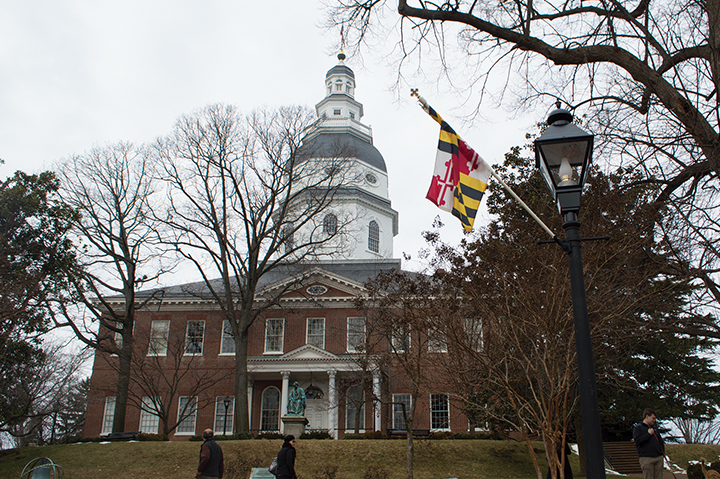The University of Maryland, College Park, and the University of Maryland, Baltimore, will pursue five new projects as part of their strategic partnership, according to an Oct. 5 press release.
The new research and programming projects will focus on virtual and augmented reality, opioid abuse, health care data, hearing implants and community-police relations.
These initiatives are part of the MPowering The State partnership between this university and UMB, which began in 2012 and was signed into law by The University of Maryland Strategic Partnership Act of 2016.
[Read more: Five-year-old UMD-UMB partnership has yielded medical and scientific programs]
The partnership’s aims to combine both universities’ resources to complete projects beyond what either could alone. For example, this university does not have a law or medical school, while UMB does.
The partnership will announce new projects annually, according to the statement. Previously announced efforts include the Center for Sports Medicine, Health and Human Performance to be established at this university’s Cole Field House, as well as the S.A.F.E. Center for Human Trafficking Survivors.
The Maryland Blended Reality Center will explore new uses for virtual and augmented reality, making use of UMB’s medical school for biomedical and clinical research and this university’s computing resources.
The Opioid Use Disorders project will work to address the opioid crisis in Maryland and the United States. This project aims to recommend treatment research and education, develop treatments and improve understanding of opioid use disorder.
[Read more: Strategic partnership between UMD, University of Maryland, Baltimore takes effect today]
Another project, the Health Informatics and Data Science Partnership, will create a health informatics specialization for the information science undergraduate studies at this university. Health informatics is “the acquiring, storing, retrieving and using of healthcare information to foster better collaboration among a patient’s various healthcare providers,” according to the University of South Florida’s Health website.
The Center of Excellence in Cochlear Implants will offer clinical services and educational training on cochlear implants, which go in the inner ear to transmit sound signals to the brain. The center will also conduct research on these implants.
The Policing Partnership program seeks to improve relationships between local police and residents. The two universities will also collaborate to increase research, educational opportunities and business development in this field, according to the press release.
“We know that our biggest breakthroughs happen at the intersections – the intersection of investigators, disciplines, and institutions – and I look forward to seeing how these extraordinary teams invent new solutions to some of the most intractable challenges we face today,” UMB President Jay Perman said in the news release.



